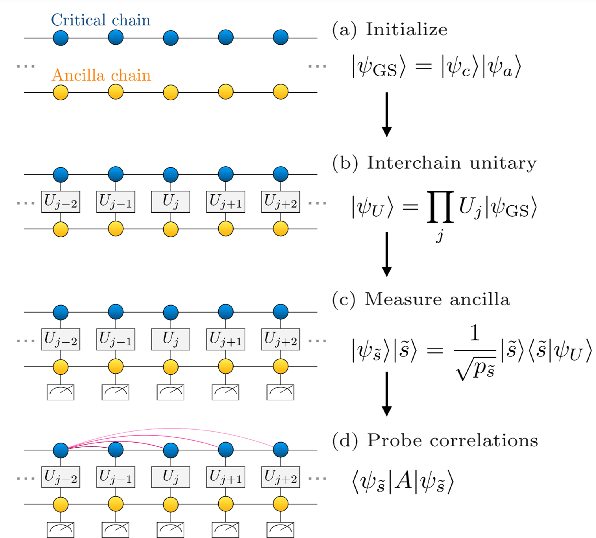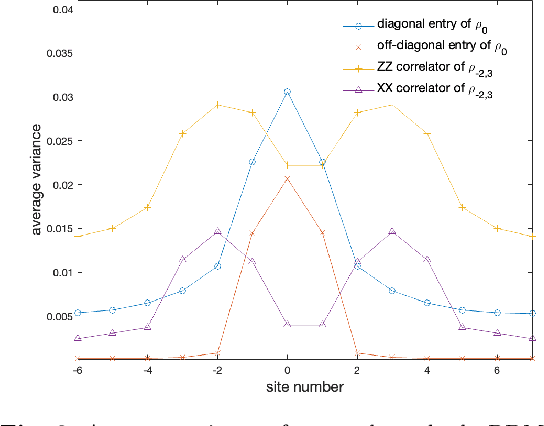Get our free extension to see links to code for papers anywhere online!Free add-on: code for papers everywhere!Free add-on: See code for papers anywhere!
Yuebo Jin
Generative modeling assisted simulation of measurement-altered quantum criticality
Dec 02, 2024Figures and Tables:





Abstract:In quantum many-body systems, measurements can induce qualitative new features, but their simulation is hindered by the exponential complexity involved in sampling the measurement results. We propose to use machine learning to assist the simulation of measurement-induced quantum phenomena. In particular, we focus on the measurement-altered quantum criticality protocol and generate local reduced density matrices of the critical chain given random measurement results. Such generation is enabled by a physics-preserving conditional diffusion generative model, which learns an observation-indexed probability distribution of an ensemble of quantum states, and then samples from that distribution given an observation.
Via
 Add to Chrome
Add to Chrome Add to Firefox
Add to Firefox Add to Edge
Add to Edge